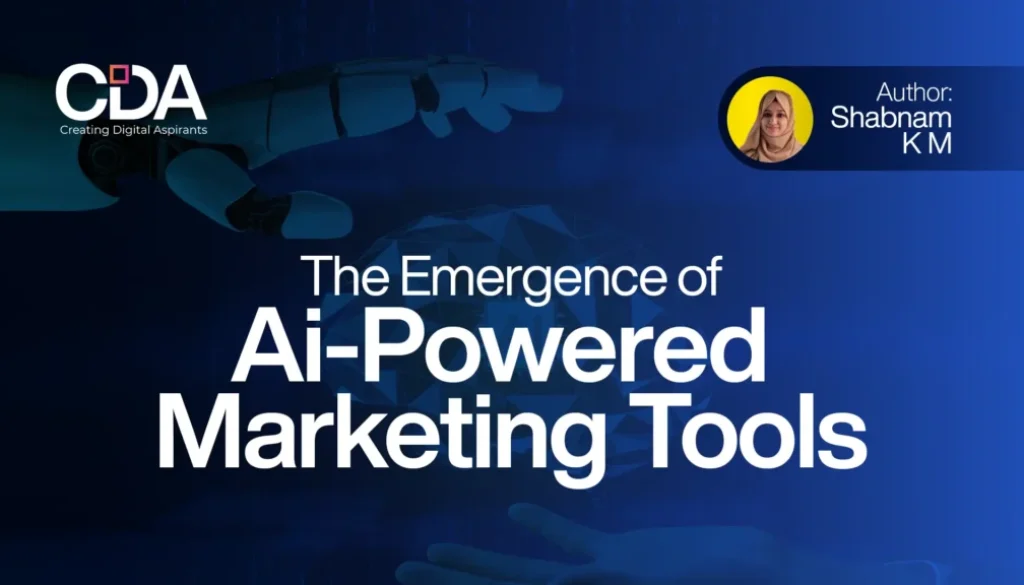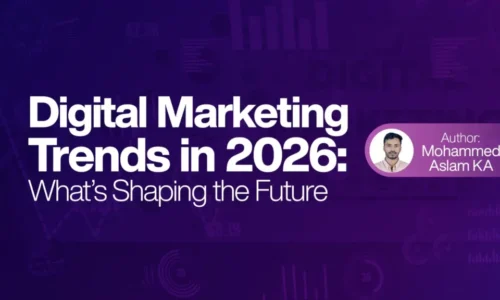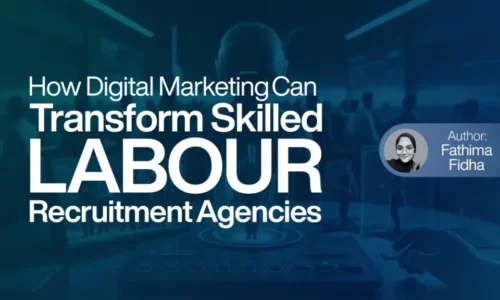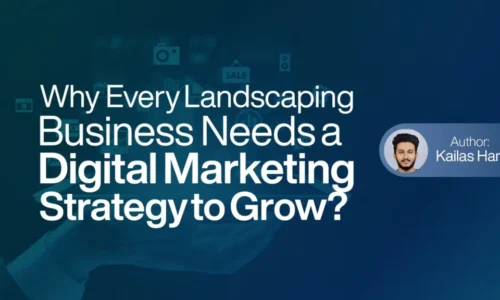The Emergence of AI-Powered Marketing Tools
Enter AI-powered marketing tools. These cutting-edge technologies are revolutionizing the way businesses approach marketing, offering unparalleled insights and automation capabilities. From predictive analytics to personalized content creation, AI is transforming every aspect of the marketing funnel. But then again, too many options can overwhelm the senses.
We are going to dive deeper into the world of AI marketing tools and explore why they rose to such prominence in shaping the industry. We’re going to explore everything, starting from basic knowledge about them and examining some popular applications that might influence the future of marketing strategy, then the problems these present, and finally glimpse at what the emerging trends for the next generation of AI-driven marketing solutions will look like.
Table of Contents
Understanding AI-powered marketing tools
Software programs that use machine learning and artificial intelligence to automate, optimize, and customize a range of marketing duties are known as AI-powered marketing products. These tools analyse vast amounts of data to provide actionable insights and improve marketing outcomes.
Key features of AI-powered marketing tools include:
- Data analysis and insights generation
- Predictive analytics
- Personalization capabilities
- Automated decision-making
- Natural language processing

Evolution of Marketing Technology
The evolution of marketing technology has been rapid and transformative.
- Traditional marketing: Manual processes and limited data analysis
- Digital marketing: Online platforms and elementary automation
- Data-driven marketing: Advanced analytics and customer segmentation
- AI-powered marketing: Intelligent automation and real-time optimization
Advantages for Businesses of All Sizes
AI-based marketing tools benefit businesses irrespective of their size, in so many ways:
- Efficiency and productivity enhanced
- Improved customer targeting and personalization
- Data-driven decision-making
- Cost-saving through automation
- Scalable marketing efforts
These tools level the playing field, allowing smaller businesses to compete with larger enterprises by leveraging sophisticated marketing techniques previously only accessible to those with substantial resources.
Popular AI marketing tools and their applications
This changes how businesses consider their marketing practices. Now, let us take a look at a number of popular AI marketing tools and some of their uses:
A. Predictive analytics platforms
Predictive analytics platforms use machine learning algorithms that analyze historical data and help predict future trends. These are used by marketers to help them:
- Identify potential customers
- Predict the behavior of these customers
- Optimize campaigns

B. Chatbots and conversational AI
Conversational AI technologies like Chat bot enhance customer service and interactions. They bring into a business:
- Customer 24/7 service
- Product recommendations based on clients
- Automated lead qualification
C. Content creation and optimization tools
Content AI tools help marketers produce content and optimize it
- Automation of content creation
- Proposed SEO optimization
- Test Headlines and Copy variation
D. Personalization engines
Personalization Engines- uses AI to deliver different, relevant experiences
- Dynamic Content websites
- Personalized Email Campaigns
- Product recommendations of purchase
E. Social Media management tools
AI-driven social media tools help marketers:
- Schedule and optimize post timing
- Analyse sentiment and trends
- Identify influencers and brand advocates
These AI-powered marketing tools have impacted marketing strategies significantly, allowing for more data-driven decision-making and personalized customer experiences. As we move on to the next section, we will see how these tools have changed the marketing landscape and the strategies businesses use.
Impact on Marketing Strategies
Businesses now approach their marketing campaigns differently thanks to the emergence of AI-powered marketing solutions. These advanced technologies have transformed various aspects of marketing, leading to more efficient and effective campaigns.
Data-Driven Decision Making
With the aid of AI, marketers have been able to make decisions on data that runs into several megabytes. It means patterns and trends, which would not have been analysed by humans, can be obtained with the aid of AI tools. Such data-driven analysis has resulted in better resource allocation and customer behaviour analysis and improvement, all resulting in more accurate forecasting, proper improvement of resource allocation, a better understanding of customer behaviour, and improvement in Customer Segmentation.
This granular segmentation enables marketers to develop campaigns that precisely resonate with certain groups of audiences, thus maximizing engagement and conversion rates.
Real-Time Campaign Optimization
Another huge impact AI has on marketing strategy is the ability to optimize a campaign in real time. Some AI tools can:
- Continuously monitor the performance of campaigns
- Identify what’s underperforming
- Automatically adjust parameters for better performance
This agility allows marketers to maximize ROI and rapidly respond to changing market conditions.
Improved Customer Experience
AI marketing tools have improved customer experience significantly with features such as:
- Personalized content recommendations
- Chatbots that provide immediate customer support
- Predictive product suggestions
These services can ensure increased customer satisfaction and loyalty, ultimately ensuring long-term growth for any business.
Now, we go to the challenges and considerations when using AI-powered marketing tools in the following section.
Challenges and Considerations
While AI-powered marketing tools revolutionize the industry, marketers should be aware of challenges and considerations arising from these tools. Let’s look at the most significant concerns:
A. Data privacy and security concerns
Data privacy and security issues arise when AI-powered marketing tools are used because these systems need to access vast amounts of customer data. These issues include:
- Data breaches
- Unauthorized access
- Compliance with regulations (e.g., GDPR, CCPA)
To address these concerns, marketers should
- Implement tight security
- Regularly audit data handling practices
- Transparency in collecting and using data

B. Integration with existing systems
Integration of AI-based tools with the present marketing systems is difficult. Problems can emerge due to:
- Incompatible data formats
- Legacy systems which do not support API
- Siloed data of different departments
To combat these issues, organizations need to:
- Conduct in-depth system audits
- Develop an integration strategy in depth
- Invest in middleware solutions if required
C. Skill gap and training needs
The integration of AI-based marketing tools is often accompanied by a skill gap in the organization. This can be overcome through:
- Comprehensive training programs
- AI specialists to be hired or developed
- Culture of continuous learning
By tackling these issues head-on, marketers can leverage the power of AI-based tools to their fullest extent while minimizing potential risks.
Future trends in AI-powered marketing
As AI keeps revolutionizing the marketing landscape, several exciting trends are emerging to shape the future of digital marketing strategies. Let’s have a look at these cutting-edge developments and their potential impact on the industry.
Voice and visual search optimization
As voice assistants and image recognition technology continue gaining popularity, marketers must develop new strategies to incorporate these fresh search mechanisms into their SEO policies. With voice search, the attention will be conversational keywords and long-tail phrases. With visual search, optimization of image metadata and alt tags comes into focus.
Predictive Customer Behaviour Modelling
AI-based predictive analytics will be used to predict customer needs and preferences with an unprecedented level of accuracy. This technology will lead to highly personalized marketing campaigns and better customer retention rates.

Augmented and virtual reality marketing
AR and VR technologies will change the way brands interact with consumers, creating immersive experiences that blur the lines between digital and physical worlds. This trend will open up new avenues for product demonstrations, virtual try-ons, and interactive brand storytelling.
Automated cross-channel campaigns
AI will enable seamless integration of marketing efforts across multiple channels, creating cohesive and personalized customer journeys. This automation will lead to:
- Improved campaign consistency
- Real-time optimization based on performance data
- Better allocation of resources
In future, AI-powered marketing trends would indeed be a game-changer, which would help businesses and brands to connect with customers on different levels, with efficiency and innovativeness.
AI-powered marketing tool revolutionizes the way business would consider the strategy in the process of marketing. These tools give marketers capabilities that are unparalleled, ranging from automated content creation to advanced data analytics. In the preceding sections, we have examined popular AI marketing tools that change multiple aspects of marketing, such as personalization, customer segmentation, and predictive analytics. Generally, the positive impact of these developments on marketing strategies is undeniable, but one cannot overlook the challenges and ethical considerations with greater dependence on AI.
However, going ahead with AI in marketing is changing this. Going forward, further developing and establishing AI will drive the future of the marketing business. Thus, embracing all that these new technologies are throwing one’s way and evolving is key for marketers who aspire to do better in the tough field, one may note. To stay up with trending technologies ,think on what might improve the marketing frontages via AI without losing that humanness through such technologies
Author Info
Shabnam, a freelance digital marketer in Kochi.
Learner of CDA Online Digital Marketing Courses.




